How to Brew the Best Coffee: It's All in the Water
May 10, 2023

In this article, we'll explore the different factors you should consider when sourcing your water for coffee brewing and how these qualities shape the final product. So before you fill your coffee machine with water from the tap, make sure you know what you're drinking.
Mineral Content, a.k.a. Water Hardness
The mineral content in your tap water varies greatly from city to city. This crucial information is readily available online if you're unfamiliar with the mineral content in your city's water supply.
If you live in a community with particularly "hard" water, this means it has excess levels of harsh minerals like calcium and magnesium. Conversely, "soft" water doesn't have excess calcium and magnesium but rather high sodium levels. However, discussing which one is better isn't so black and white. This is a far more nuanced topic.
Hard water that is high in calcium can create extremely bitter coffee, meanwhile, high levels of magnesium help extract the grassy, earthy notes in your roast. However, soft water can often create more acidic and sour-tasting brews or dull coffee because it lacks minerals. Experts baristas will typically factor in their local water mineral content and source filtered, mineral-rich water if unavailable in their local water supply.
Water Cleanliness
This might seem self-explanatory, but many people don't consider this factor when using readily available water to brew coffee.It's crucial that the water used for coffee brewing be filtered and clean since contaminated water can ruin the taste and aroma of your extraction. Always use filtered or bottled water to brew coffee. If you live in a community that ranks low on water quality, investing in a water filter attachment or filtered pitcher will make a major difference in your coffee's flavor.
If you're in need of a filter, Adagio offers a wonderful option with their GraviTEA.

Let's Talk pH
Most of us learn about pH in chemistry class and how the balance of pH levels affects certain materials differently. Coffee chemistry is no different.The pH levels in your water will alter coffee varieties differently. Water with a pH level above 6 (more alkaline) will increase your coffee's pH, ultimately diluting its acidity. For roasts with brightly floral, delicious tart, and citrusy flavors, like our Catuai Honey and Castillo Washed varieties, alkaline water can help balance these notes. In fact, the more alkaline the water, the better it is at removing sourness.
However, high pH levels are also attributed to more bitter-tasting coffee, so there are some cons to consider as well. More acidic water (lower pH levels) can help bring out the natural sweetness in coffee varieties but leave you with too much acidity. Test your home's water pH levels, and explore the possibility of souring different water if it doesn't suit your coffee brewing needs.
Water Temperature
Temperature is one of the critical pillars of coffee brewing. The hotter the water, the greater its ability to extract flavor from your coffee. But using too hot water can lead to scorching your coffee, resulting in a burnt, bitter-tasting brew. Boiling water also causes over-extraction and bitter coffee.It's essential to use a kettle that can heat your water with precision, like Lardera's Smart Electric Kettle, which reaches your exact desired temperature in under 100 seconds. A good rule of thumb is to use water that's between 195-205ºF.
How To Source The Best Water For Your Coffee Needs
For anyone who doesn't have immediate access to ideal water conditions, there are a handful of solutions available on today's market.As previously mentioned, various water filter attachments can be installed onto your tap water to remove contaminants or excess harsh minerals. Another option is filtered water pitchers that require routinely changing out a discardable filter. And if you'd like to prepare batches of water for coffee brewing, there are mineral packs available, like Third Wave Water, which get mixed into water to give it the ideal combination of minerals for each coffee variety, from espresso to cold brew.
